In the limitless, drug-fuelled summer before the publication of his first book, the young writer Karl Taro Greenfeld buries looming disappointments with Europe’s drifters in Ibiza.
In the late spring of that year I sold everything I owned. It was easy; I kept lowering prices until demand overwhelmed supply. Friends and acquaintances climbed the two stories to my one bedroom Tokyo flat and hauled away my futon, sofa, chest, bookcases, television, stereo, dishes, cutlery, washer and dryer, space heater, and appliances. The sofa—a grey, armless convertible perfect for napping—went for Y25,000, about $200. The TV, a 27” Sony, was purchased for about $200, and I threw in the VCR. I stood in my living room—there was nowhere to sit; I had even sold the three bar stools that had convened around the little galley-style dining counter—and folded the cash into a wad and listened to my customers trudge downstairs with their new stuff. Good riddance, I thought, who needed it.
I walked back through my empty apartment noticing the slight echo, past the service area where the washer and dryer used to be and past the water taps, drain, and vent, now exposed and looking somehow forlorn, and then down those same steps to a waiting taxi. In the trunk were my boxes of books and on the passenger seat and stacked in the back were all my files, writings, letters, faxes, contracts, and whatever else I had scribbled, typed, or received while I lived in that narrow apartment.
I believe I spent every yen I made from selling my stuff that night on hostesses, scotch, and cheap, heavily cut cocaine.
Not that I was worried about money. I was flush. In a few months, my first book was being published in England and the U.S. and I had yet to receive the various payments that were due to me upon acceptance; something like $30,000 was owed me. I was planning to fly to New York, get my money from my agent, and then continue on to Amsterdam.
That’s why I sold my stuff. I was moving to Amsterdam with my Dutch girlfriend. And who needed stuff in Amsterdam?
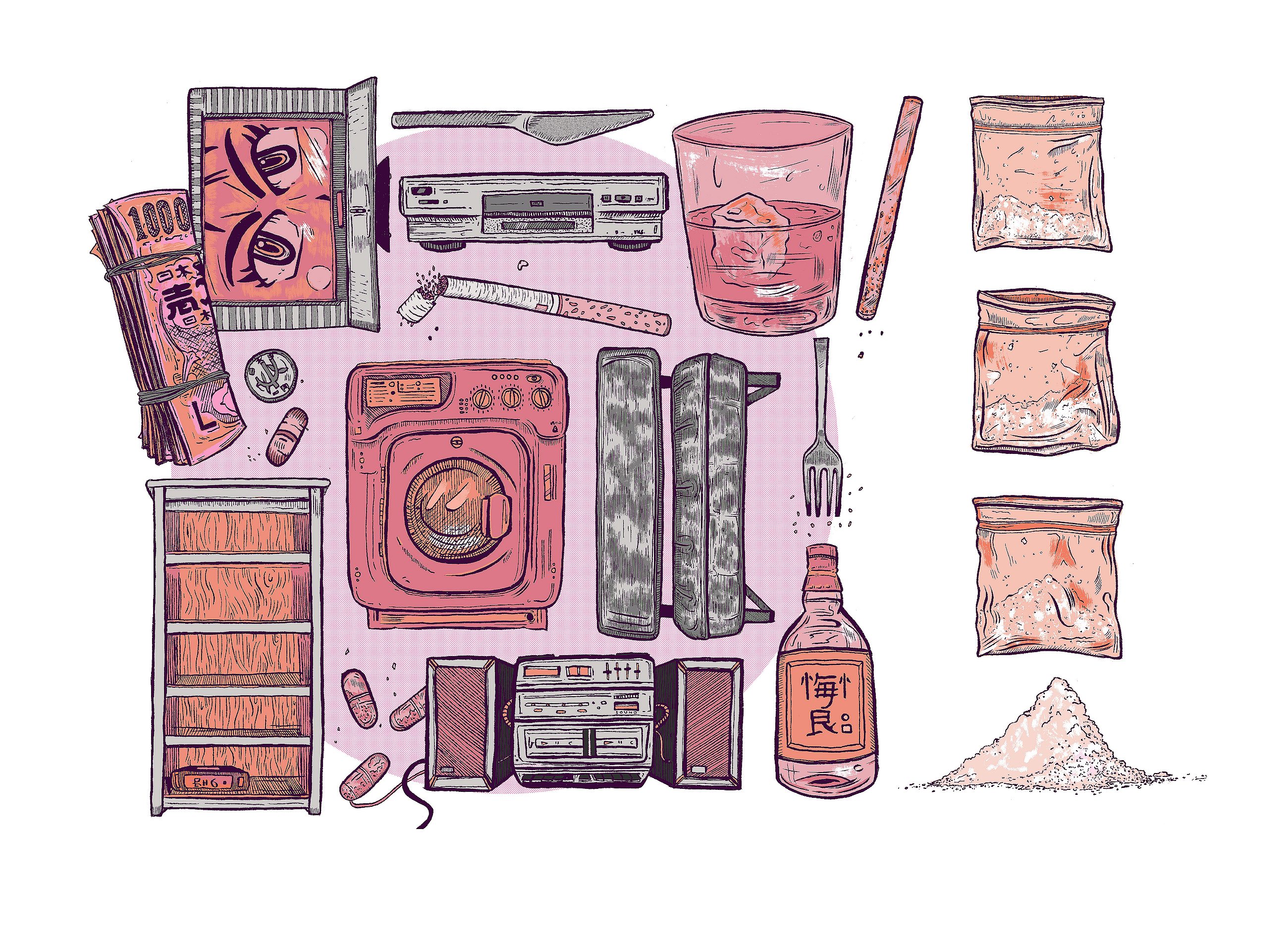
Amsterdam turned out to be cold. I arrived in June, met up with Anne-Marie, and we froze. I had sold my winter clothes, my down parka, my old wool overcoat, my ski sweaters. So here I was, in mid-June, looking through flea markets on the Albert Kuip for a pea coat.
This sucks, I told Anne-Marie.
I told you it was cold in Amsterdam, she shrugged.
My one previous visit to Amsterdam, during the summer after high school, had coincided with aberrationally lovely weather. I had misconstrued the place to be just like Venice—the canals, the old buildings, the museums—only with more blondes and drugs. It turned out to be more like Vancouver, with about the same amount of blondes and drugs.
Anne-Marie had grown up in the south of Holland, near Maastricht, and moved to Amsterdam to study interior design and then on to Tokyo where she modeled. She was tall, broad shouldered, and blonde; if she had gone to high school in America, I imagined she would have been recruited for the volleyball team. She spoke English with an accent that seemed to me more German than Dutch, pronouncing this and that as dis and dat and temporary as tempowawy. She had flown to Amsterdam ahead of me, leaving me to dispose of our possessions.
She had secured for us a furnished flat near the Oosterpark, in an old barracks supposedly built by Napoleon for his hussars during his occupation of The Netherlands. I don’t know how long they stayed, but I suspect one of the reasons they decamped was the weather; Russia probably seemed a warmer alternative. There were two little rooms, starkly modern with tall, double-paned windows and a kitchen with all sorts of thrifty little European appliances and fixtures. I believe the water from the sink drained into the toilet bowl and then the water from the toilet drained somewhere else clever and efficient, the neighbor’s sink for all I knew. There was a coffee maker that looked like a video game console and a dishwasher the size of a toaster. I hated those little machines; they were so disappointing after the wonderful appliances I had sold back in Tokyo.
Remarkably, a Dutch publisher had also bought the rights to my book—in hindsight, I am always amazed by the optimism of publishers—so the only order of business I actually had in Holland was to go and see my Dutch publisher. I had imagined I would get a dinner out of it, but instead I went to see him at his office on the Herengracht. He wore a velvet jacket and was worried about finding someone famous to give a quote for the book. The authors who had blurbed the U.S. edition weren’t famous in The Netherlands—or the U.S. for that matter. Other than that, he didn’t seem very interested in me and after that meeting, we never spoke again.
So that cold summer, I took to walking around the canals, past the hookers in their red lit windows looking like the efficient little capitalists they were, and hanging around with the Turkish junkies who smoked heroin off tinfoil, next to the brown brick Neue Market, which had yet to be reconceived in its Phllipe Starkian incarnation. Back then its shadowy recesses between masonry humps were perfect for hiding in for a few minutes to get stoned on the cheap brown smack that came in little, tightly wrapped cellophane balls the size of jelly beans. It cost five guilders a bag, and you needed at least two to really get off; I believe it was cut with some kind of dirt. I would shiver next to the brown stones, get high, and then join Anne-Marie and her friends, my optimism and faith in the inevitable success of my book chemically restored.
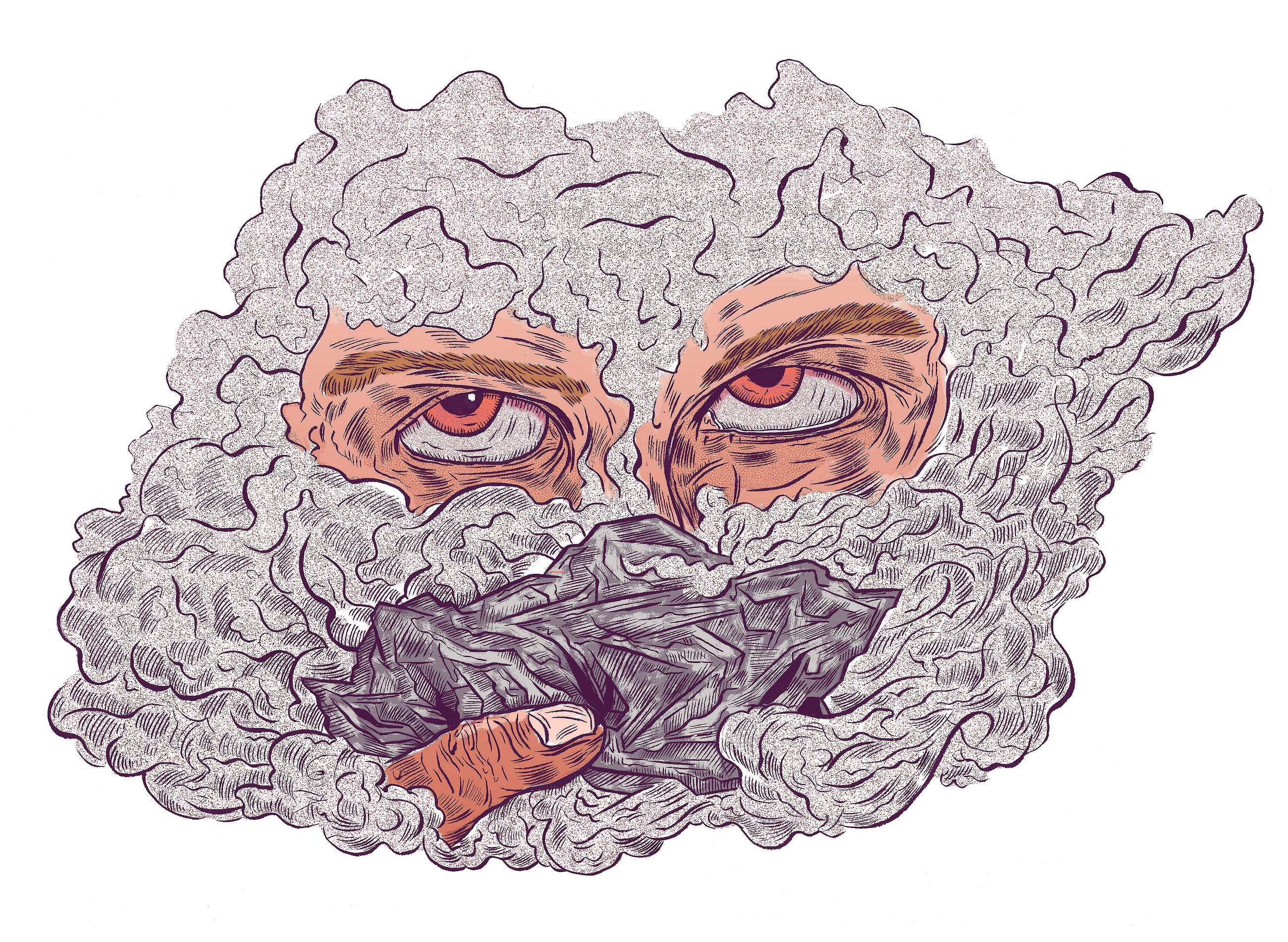
There was also a World Cup that year, and I would lay in the former barracks on an uncomfortable brown sofa—so inferior in every way to that which I had sold—and watch Brazil, Germany, Italy, and Holland have a kick around while I smoked that low grade dope and blew my hits out the window. This was going nowhere, I told Anne-Marie when she woke me up on the sofa with the TV showing test patterns. (They still had those then; now Dutch TV stations just surrender at a certain hour to an endless loop of infomercials and ring tone ads.)
Come to bed, she would tell me.
And I would sleep for a few hours and then head back to the Neue Market and the Turks.
Instead of buying an overcoat we moved to Spain. I still had the money from the book so we could really have gone anywhere but Ibiza sounded promising so we boarded an Air Holland flight and rented a little apartment on a spit jutting into the Mediterranean with a tiny plunge pool that offered a three-directional view of the sea. It was sunny there, and for the first few days I sat on the stucco bench by the pool and read magazines and got my blood warm like I was a lizard. There was no dope in Ibiza, or at least I didn’t know where to find any, so I tapered off with the few pinches that I had brought along and supplemented that with some valium and stillnox I bought over the counter in Jesus, the village down the hill.
I’ve concluded that I will never be rich. I always look at whatever money I have, in the bank, in my wallet, wherever, and imagine that it is the last money I will ever make and that somehow I have to stretch this out to last me the rest of my life. Usually, this is a depressing prospect, as I am spendthrift and tend to run through money quickly. But that summer, I had all the book money, and then a movie producer from England called and suddenly there was the prospect of movie money and why, that seemed like it would do nicely until I died. I was 27 and who could imagine living much past, say, 35?
Now, as I lay in the sun, selling all my stuff looked like a brilliant move. I was unfettered and free. I had the clothes in my duffel bags, a computer, a few CDs. (I had left my boxes and files with a friend in Tokyo.) What else did I need? All you losers with your stuff, your possessions, your appliances and furniture, you guys would never know how it feels to be so unencumbered. You are mules, packed beyond capacity with your TVs and sofas. I, on the other hand, could tell myself I was as light as a good buzz.
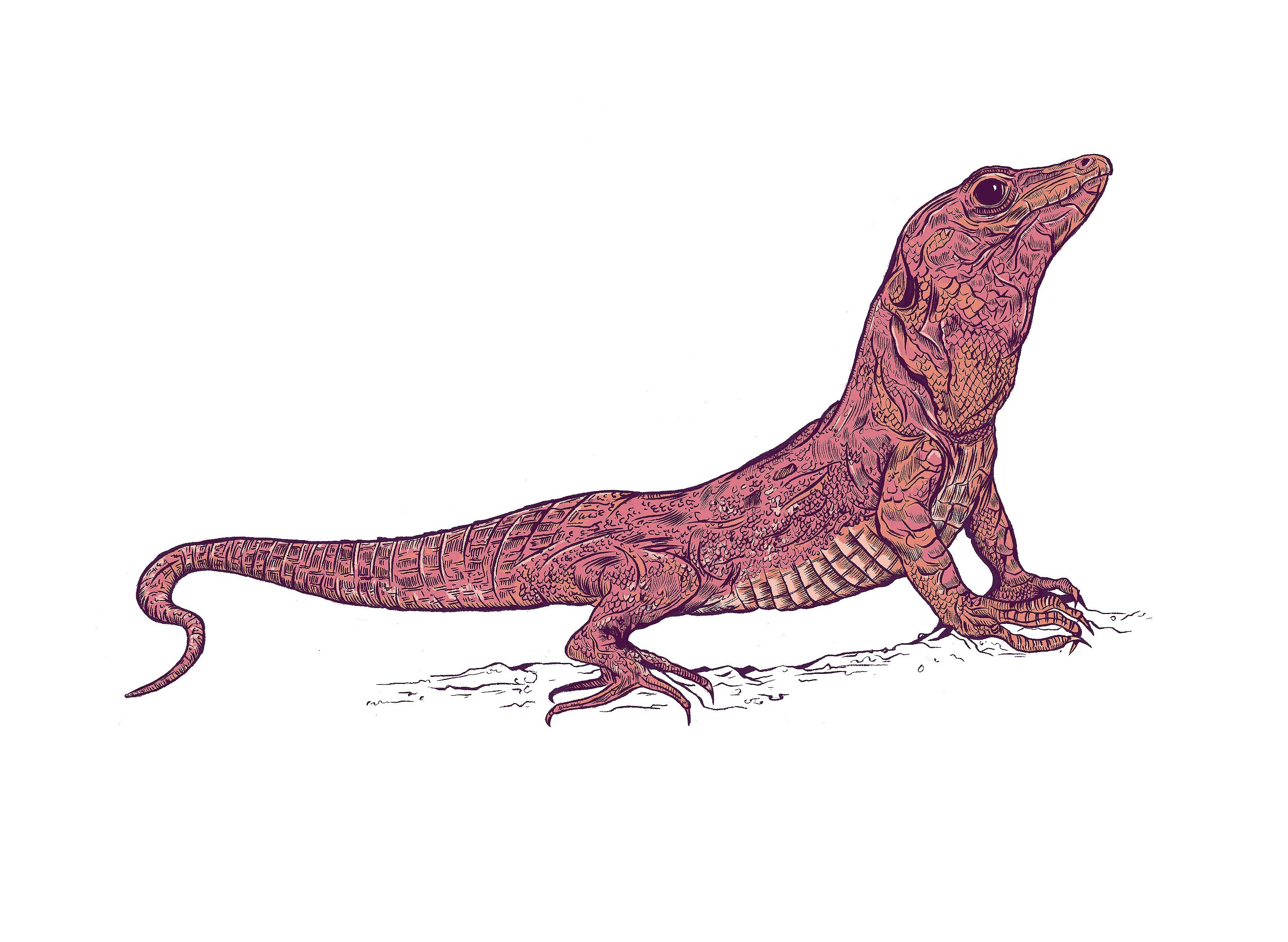
It is easy to make friends when you are on that happy streak, when you are weightless, when every peseta you have can be allocated toward cerveza and cocaine. I had stacks of silver and blue 5,000 peseta notes stashed in an envelope hidden amidst my socks in a bedroom closet. I would pull out two or three of them and head out for dinner and drinks and then over to The Rock, which was then up the hill in the old city, where Syd or Nick or one of the other boys would sell me cocaine. I would stay up late, arguing with my Spanish friends about the state of the world and because of my ebullient mood and my feeling that I had hopped a winning streak that would never stop, I was terribly persuasive.
In the afternoons we would drive to secluded little beaches, curving, rocky coves with stone slips where local fishermen used to keep their jollas, back when there were more fishermen on the island than DJs. We would strip off our clothes and swim and then I would sit on the sand and discreetly assess the pubic hair stylings of the naked women. It turns out there is a direct correlation between female age and volume of pubic hair, and it is a pretty steady slope upward toward more follicles. Prepubescent children are totally hairless, then come the sexually active late teens and twenty-somethings and their very neatly coiffed little landing strips, and then there are those in their 30s who might be starting to let the patch grow a little, and so on until you reach the old German ladies who are matted down there like grizzly bears.
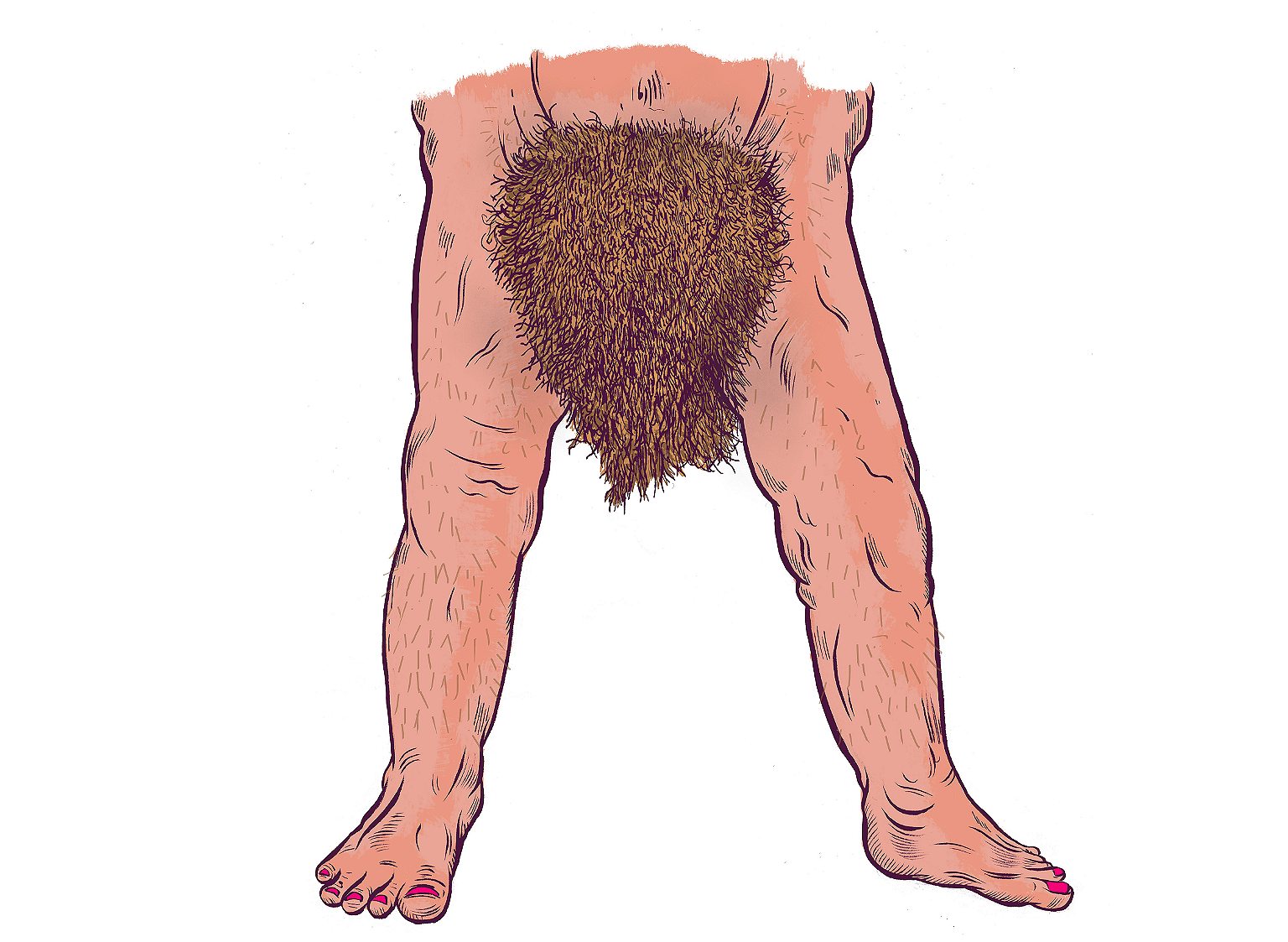
I looked over at Anne-Marie, still neatly trimmed, and considered what I might have to look forward to. She was heading back in for a swim, her ass moving in a circular motion as she picked her way between the rocks and over the seaweed to the sea. She took a few tentative steps and then kicked out, commencing a stately breast stroke with her head out of the water. She didn’t like for her hair to get wet. After a few meters, she abruptly stopped as if she had forgotten something. Then she turned around and swam back, emerging from the water and reaching up to her neck at the same time.
“Something bit me,” she said.
“What?”
“I don’t know,” she was rubbing her neck, “can you see anything?”
There was a small red strip, a series of tiny ridges running from her neck to the left of her spine.
“Was it a medusa?” She asked, using the Spanish word for jellyfish.
I couldn’t tell. The welts appeared to be rising. We gathered our reed mats, towels, and bottles of water and headed back to the car. The whole drive home, Anne-Marie was in increasing discomfort, rubbing the wound, stretching her neck.
“It felt like an electric shock,” she said, “like it goes right through you.”
She soon had an archipelago of red bumps and ridges running up and down her neck, shoulder, and right arm. Several creams she applied for treatment proved to only irritate the problem and even a late dosage of my urine did nothing to sooth the angry skin. The jellyfish sting also had a curious mental effect, fatiguing Anne-Marie and causing her to lose her appetite. She seldom wanted to go out. I was soon driving down to town alone in the Suzuki jeep and meeting up with my friends and drinking and snorting until well into the morning. (It would find out later that this period in Ibiza would be when the so-called Balearic sound was born, when legendary DJs from Manchester and Amsterdam would come down to Ibiza for sessions at Pacha, Amnesia, Ku, and the sort of groovy, spacey house music that rules Europe to this day was taking shape. It was going on, literally, just a few meters from where I was drinking, snorting, and arguing. I totally missed it.)
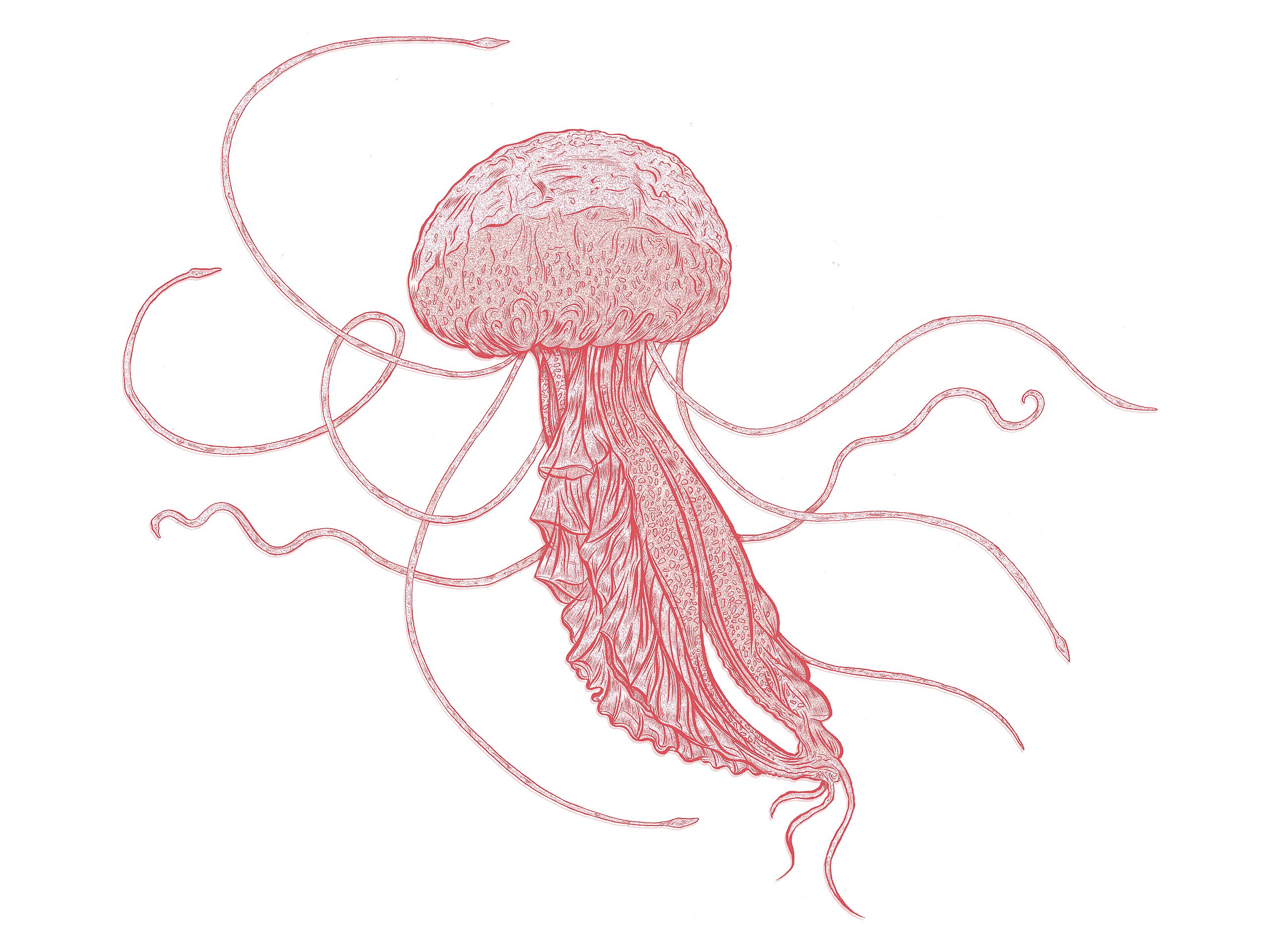
I had no plans. At some point, I had to know, this summer would come to an end. The temperature would drop. Where would I go? This was my first book. And this was that lull between the good news of the acceptance of that book and what has turned out, for me, to be the inevitable disappointment of publication. I’m not bitter about the reception I’ve gotten, but I can’t help but notice. And since that summer, I’ve become more stoic about this period, confusing as it is with its giddy bursts of optimism and sky’s-the-limit sense of possibilities—great reviews, big movie option, best seller, who knows?—and then sneaking suspicions that what is to come will be disappointing—lousy reviews and indifference. It is a frenetic period, and though it always ends, for most authors, in crestfall, it is hard not to get a little manic while you are going through it. As I look back on that period now, I believe I can detect the impending depression and sadness, as if even while that good time was in motion, the mechanisms that sustained the fun were already loosening, unscrewing, breaking down. I should have known it was temporary, but then, what isn’t?
Anne-Marie’s condition deteriorated—she was having an allergic reaction to the jellyfish sting and so became bedridden, wrapping herself in a terri cloth robe as she applied poultices and flipped through issues of Panorama or Vrij Nederlands. A doctor in Santa Eulalia had told her that she should stay out of the water, yet he had no explanation for her lethargy. There was nothing I could do to assuage her suffering, yet I commenced the habit of speaking in a softer voice and making more quiet footfalls throughout the apartment, as if she had become ultra sensitive to noise. Her appetite waned; at one point I accused her of a hysterical reaction.
Finally, one Friday, I coaxed her out of bed, urging her to join me for a party at a friend’s house in San Carlos, in a finca by the road near Las Dalias. I had been playing cricket on Sundays with a gang of English expats; I never really understood the rules and I was an awful bowler, but I enjoyed batting and fielding the ball bare handed.
Anne-Marie and I arrived in the Suzuki and parked it in the dirt lot by Las Dalias. A few of my friends were seated on the patio, drinking beer and arguing, if I recall, about a row that had taken place at this week’s cricket match. Another Dutch girl, Elsa, had received a few doses of LSD as payment for a babysitting job and we were planning to drop them as the sun went down.
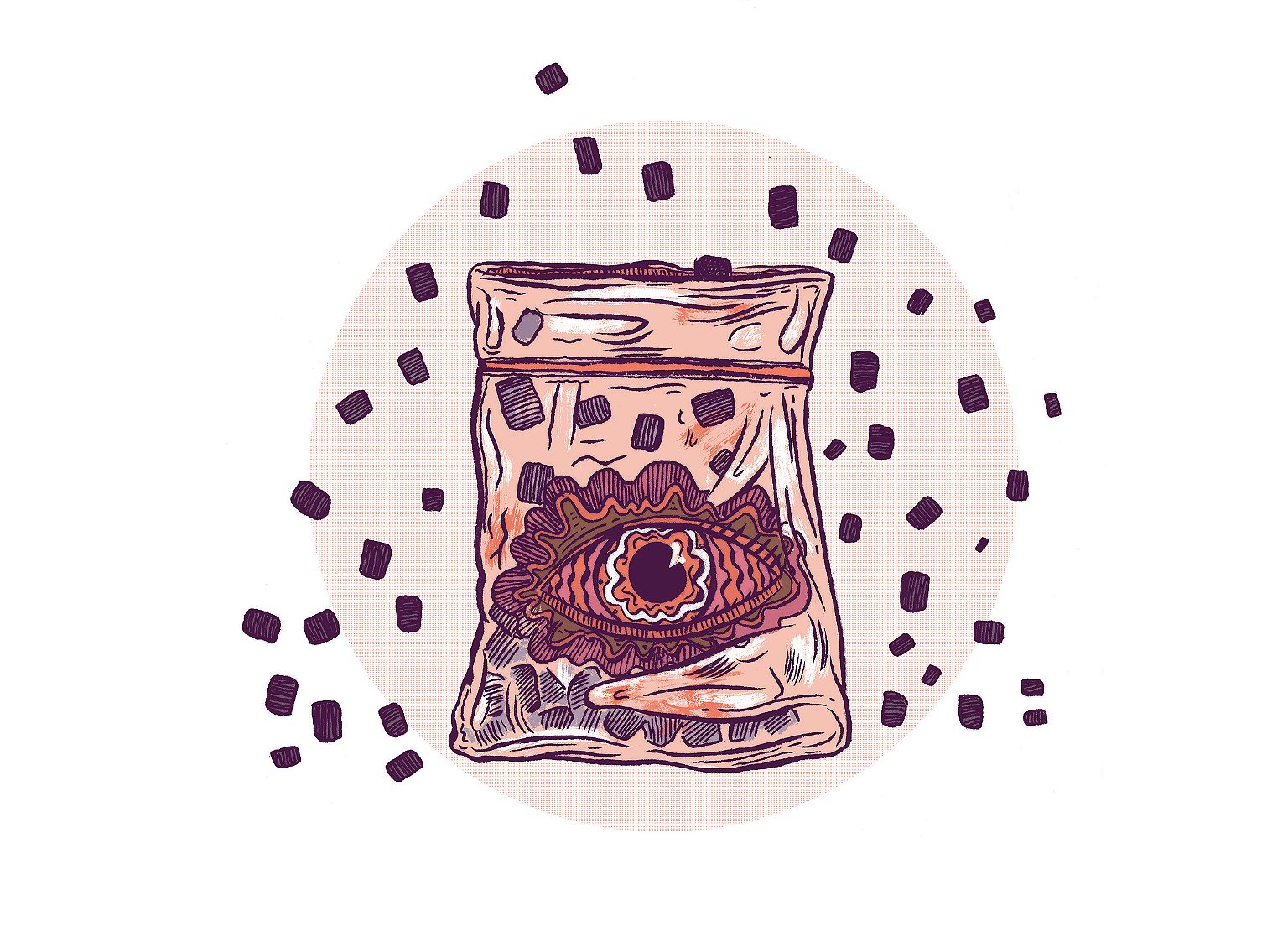
Anne-Marie had never liked Elsa—she had a small dog she brought everywhere and once, at our apartment, it had pissed in the living room—and so was sullen both because of her condition and the company. I was trying so hard to get her into a festive mood, to interest her in the whole evening ahead, by explaining to her that at some point, she had to just get up and shake off this awful, jelly fish-induced malaise. She had agreed but was having doubts, about Elsa, about the LSD, about the whole evening.
Elsa, in addition to the dog, was a lesbian who had once jokingly claimed she believed Anne-Marie might also be a lesbian, or at least bi-sexual, and she suggested that she might be able to seduce her, or at least encourage her to participate in a three way. Elsa wasn’t predatory so much as annoying. For one thing, even if Anne-Marie had been saphistically curious, Elsa’s personal grooming would probably have dissuaded her from choosing her for her experiment. But in the time that Anne-Marie had been secluded in her recovery, I had winded a few evenings down with Elsa, who had a prodigious appetite for narcotics. It was Elsa who had brought me to the dirt lot behind Es Canar where the cricket game was held and she had also told us about this party this evening.
But now, she had stood up and was feverishly going through her pockets.
“Shit,” she said. She had lost the acid.
“I had it in the plastic from a cigarette pack,” she said, showing a pack of Marlboro reds stripped of the vinyl wrapping.
She rifled her pockets, her leather sack, and then her pockets again.
“Shit.”
After psyching ourselves up for the acid trip—this sort of hallucinogenic indulgence was a rarity for me—we were all a little disappointed. It was, however, completely in character for Elsa to have lost the drugs—or perhaps just taken them herself and forgotten.
For Anne-Marie, this was a relief. She hadn’t been looking forward to the experience and she was still in a depleted condition. But now that there would be no trip, Anne-Marie seemed to relax a little.
Just then, a strikingly handsome shirtless boy in a moped pulled up beside us, standing his little two-stroke contraption against the wrought-iron railing around the patio. He wore a pair of aviator style sunglasses and had spikey blond hair; he was perfect and without knowing a thing about him, I decided he was the leader of some teenaged gang that was having even more fun this summer than me. A few more mopeds pulled in beside him, other shirtless boys and beautiful blonde girls, none of them older than 18. For some reason, I asked him if he had any acid.
Of course, he nodded. “It’s very strong.” He had a German accent.
He had a baggy full of this “very strong” acid shaped in tiny little black pills the size of this o. We bought five.
Much to Anne-Marie’s discomfort, the trip was back on. Each of us but Anne-Marie quickly gobbled our little pills.
“Come on,” I told her.
She wasn’t sure.
“Then take half,” I urged.
She nodded. I handed her the pill. “Bite it.”
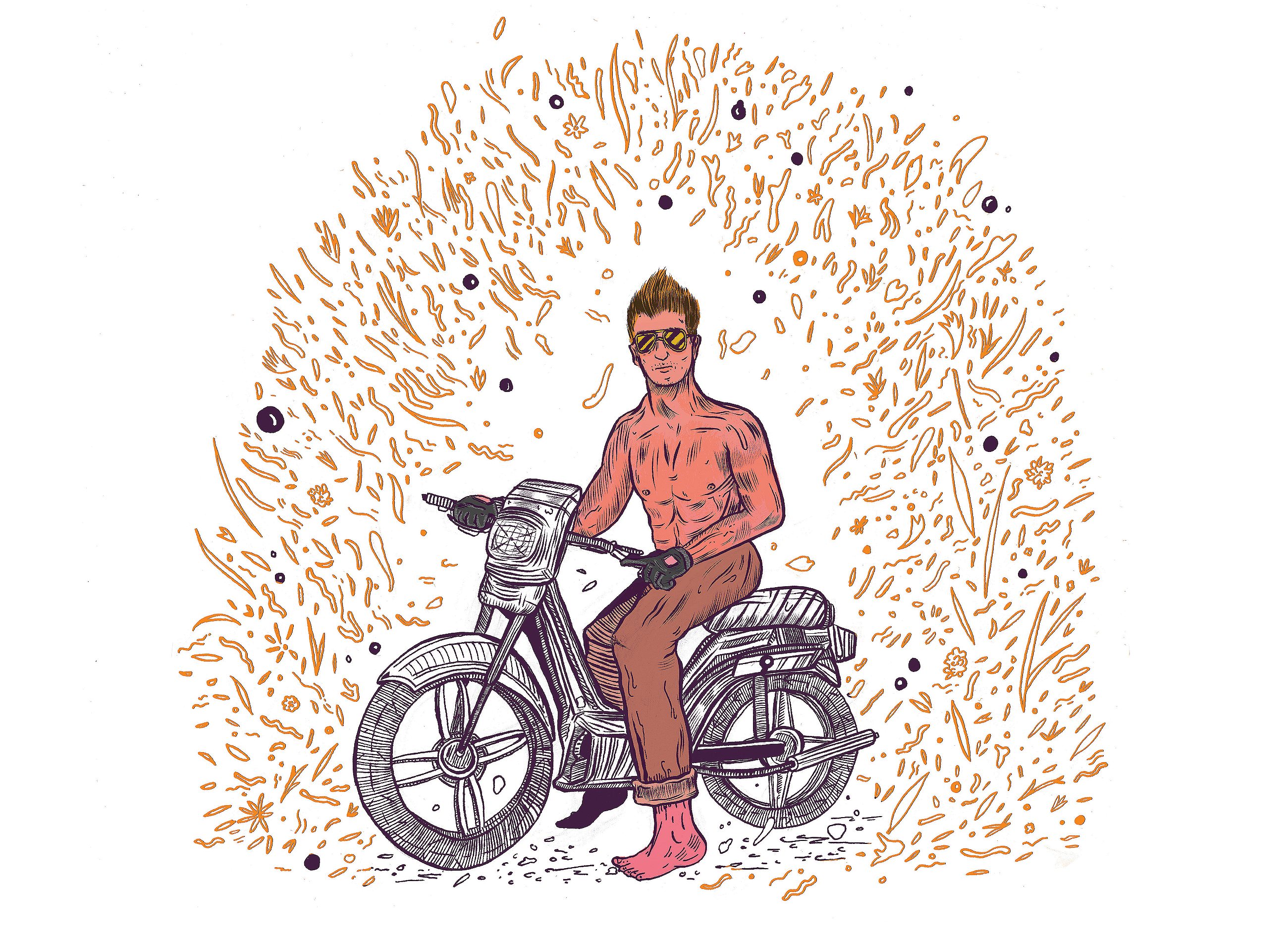
The party turned out to be at a compound inhabited by some Americans who seemed very old to me but were probably around 35. I had seen them around and dismissed them as hippies. They were part of that crowd that sold their imported Indian bracelets and Nepalese prayer flags at the hippy market next to Las Dalias and I found them all to be a bit snobbish and I think they probably thought the same of me.
By the time we arrived, the acid was already kicking in so I never quite understood the layout of the house, or houses, as it seemed like there were two or more attached by gardens and courtyards. There was a roof that we climbed on at one point and sat beneath a willow tree whose branches were swaying in the light wind and while I was talking to my friends, those branches would flare at me like wiggling fingers. Narrow, bony little white fingers with flowers all over them. The flowers would themselves pulse and brighten like fairy lights as the wind took them. Then those lights flew off in a thousand directions. When I tried to explain what I was seeing, Anne-Marie was becoming angry because she wasn’t seeing the same things.
“Take the rest of it,” I told her.
And she did.
Then I tried to explain to Elsa and my cricket chums that the same technology that was allowing for these amazing visuals was also behind the sort of claymation work done in kids shows. You know, sort of stop action photography stuff? Only now, it’s inside your head.
Never mind, we all agreed.
I had a book coming out. What then? For a second I felt confused and burdened by some great weight and I was about to ask what I should do with my life, when Elsa turned to me and said, “let’s get some beer.”
Perfect. We climbed down from the roof and went inside a white stucco house and found beer and when I swallowed I felt as if I was divided into discreet compartments, my mouth, my throat, my stomach, and I tasted the beer so intensely and it was so overwhelmingly pungent that I could only take two sips. And there was a blond kid with a Mohawk and pierced nose and he was saying how he was going to take over the music, which until this point had been pretty boring old Rolling Stones stuff. He charged over to where the hippies were seated around a table, popped a cassette out of the deck, inserted his own cassette and for about three seconds we heard Stiff Little Fingers and “sus-sus-sus-sus-suspect device” and then it was turned off and the old music was put back in and the punk rocker came back and said it was good while it lasted.
“That was punk rock,” I shrugged. “Just a blip.”
He agreed. “But it was good.”
Where was Anne-Marie?
We had lost her. I went back out to the courtyard and then down into a cactus garden where I worried I would impale myself on all these tiny thorns and then I felt a breeze for the first time in what seemed like ages.
“Karl!” I heard someone shout.
It was Anne-Marie. I followed her voice to where I saw her standing by a white wall. Her eyes were wide and her mouth was turning from a smile to a frown and then to an expression both frightening and contorted. I had never seen her look like this. Not frightened, but, yes, that was it, she looked terrified.
“Hey,” I said.
“Karl!”
“Yeah? Are you okay?”
“I think I’m losing my mind.”
Uh-oh. “No, you’re not. It’s just the drugs. Remember. It’s just the drugs.”
“Okay,” She nodded her head. “Karl?”
I looked at her.
“Karl? I feel like my brains have been thrown in the air.”
“You’ll be fine.”
“No, I’m freaking out.” She had closed her eyes and thrown her mouth open in a silent howl. Her cheek, nose, and forehead were vibrating with the twitching of facial muscles I didn’t even know existed. She looked, I realized, like an inmate in a mental hospital. And I had done this to her.
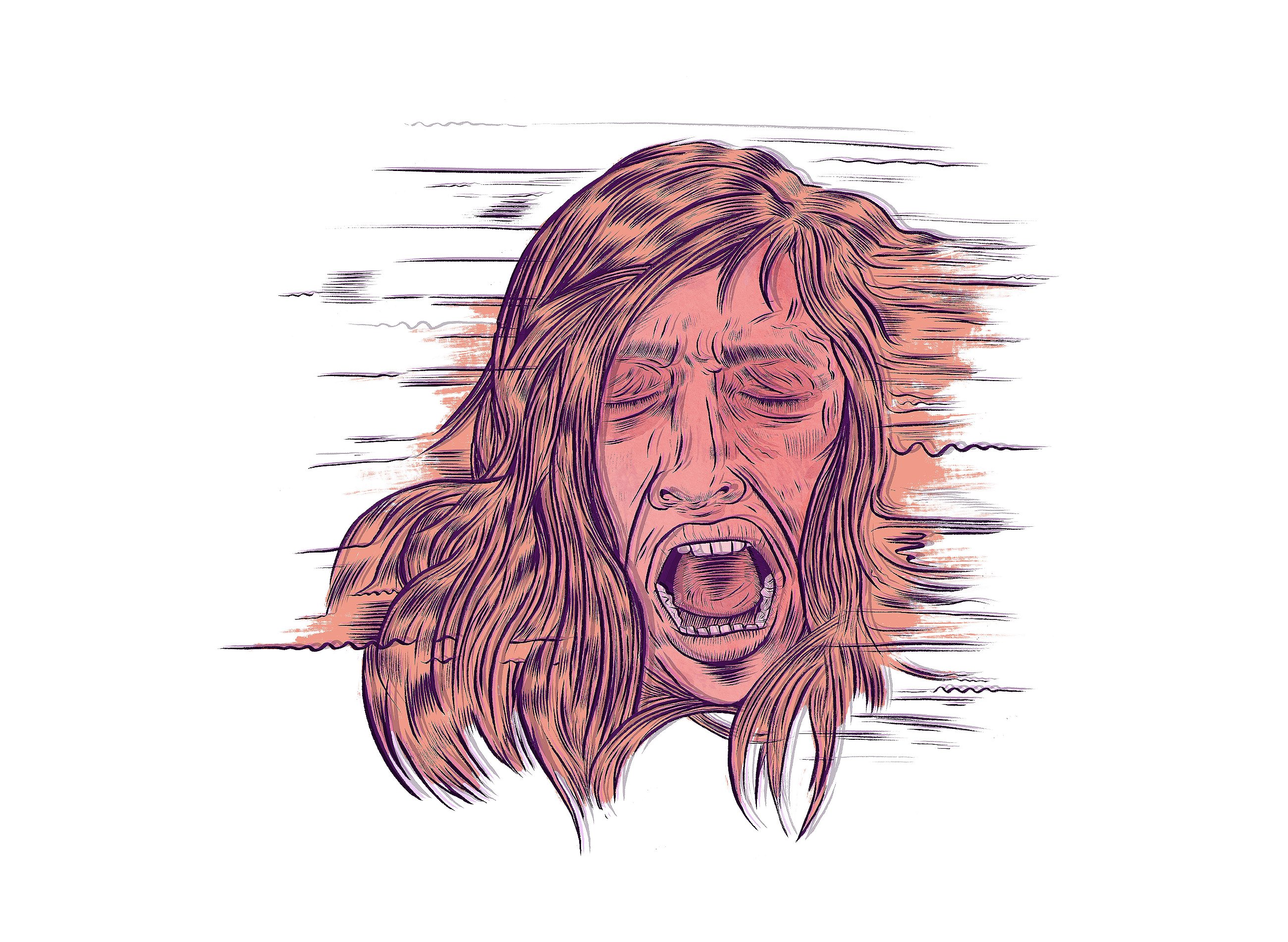
I thought about the bottle of Valium I had back at the apartment. V, V for victory, I thought. She needs a heavy dose and then a long sleep. I had to get her out of here before she became another of Ibiza’s acid casualties, a girl gone sort of loopy and in and out of mental hospitals all because her boyfriend talked her into taking some LSD one night. I could imagine my life in Holland, where the state would probably provide efficient but dreary institutionalization for Anne-Marie and I would have to dutifully visit her. And just when everything seemed to be going so well for me.
This meant I had to drive.
Fine, I could do it. I’d driven in this state before. Not since high school, perhaps, but I had experience. I took Anne-Marie by the hand, led her through the cactus garden, down a path between houses and through the driveway to the rocky dirt road where I had parked.
The road from San Carlos to Roca Lisa is about 15 kilometers long. I believed it took me about five hours.
But Anne-Marie swallowed four blue Valiums and went to sleep.
I had dosed her.
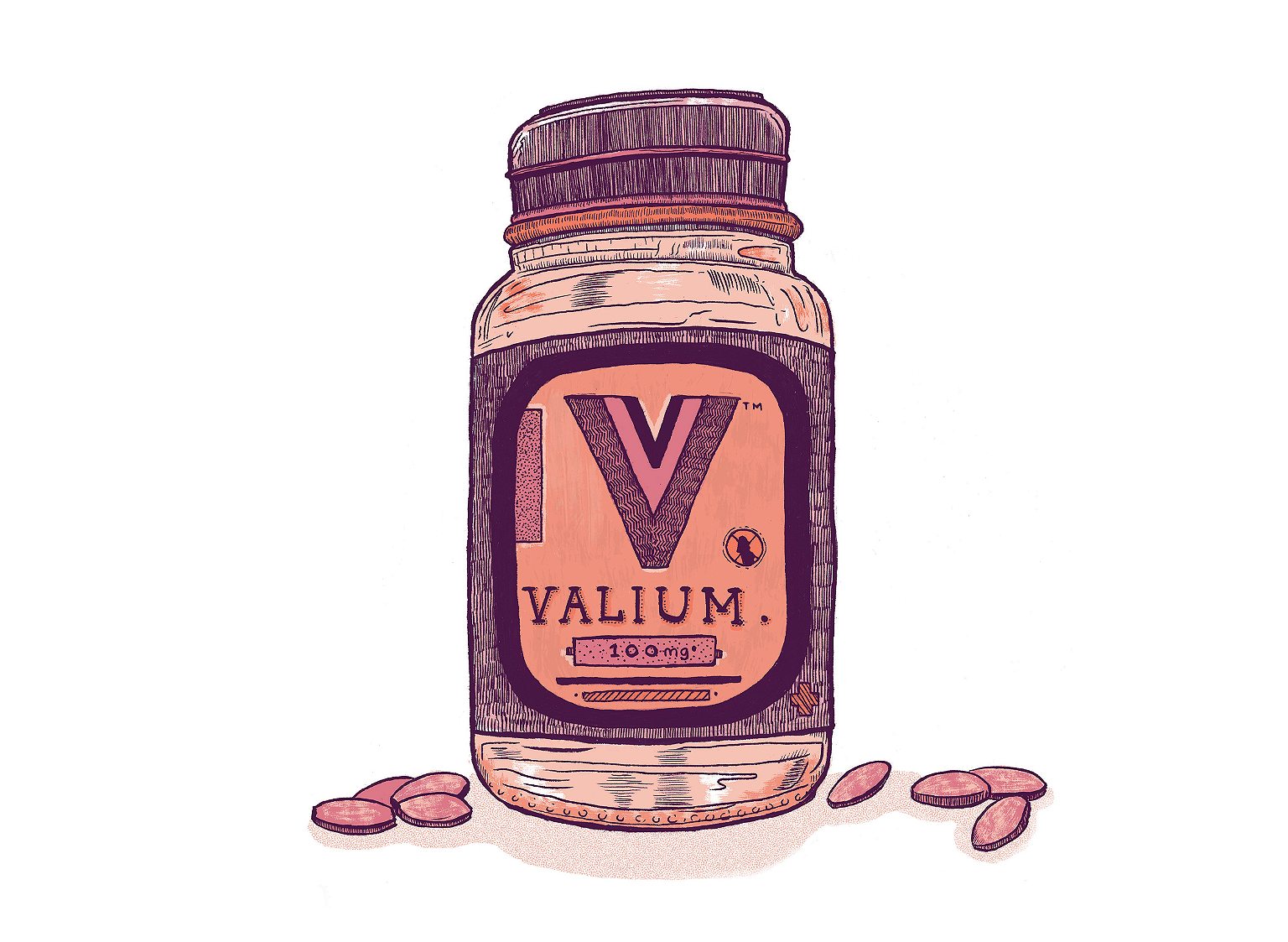
It was time to go, Anne-Marie insisted. We couldn’t stay here forever. What was there here, anyway? Just kids and drugs and tapas.
I shrugged. “Well?”
“Karl, we need to go somewhere, do something real.”
Our return tickets were to Amsterdam. If I thought the city was cold in June, by October it had become arctic. We walked down the cobblestoned Singel, past the girls who in their thick wool coats suddenly looked tired and old as they wearily pedaled their bicycles through the freezing rain.
We had nothing to do but drink in lager-smelling bars with the last of the tourists, those who had overstayed the summer and were now killing time in Amsterdam waiting for their cheap flights home.
I remember standing by the plunge pool in Ibiza just a few weeks earlier, before Anne-Marie’s jellyfish sting and bad acid trip. It was late afternoon and we had already been to the Montesol café and then the beach. Anne-Marie was laying on a raft in the pool, flipping through an issue of Vanity Fair while I walked along the side, out to the far end where the patio overlooked the Mediterranean. The soft sun was warm on my shoulders.
I spoke on the cordless phone to a movie producer from England. He and my agent had already agreed to the price he would be paying for the option. This call was about his plans for my book; he envisioned sort of a Battle of Algiers, only set in Japan. He was enthusiastic both about the book itself and its prospects to get made as a film. He mentioned Chanel 3, Canal Plus, all would be putting up some money. Yet another big check seemed likely to come my way, but even more important, a life of floating on such gusts of money thrown up by my unlikely talent as a writer seemed practically assured. (“Like walking from cloud to cloud,” was how Anne-Marie described such an existence.)
I signed off on the conversation with the English producer and switched off the phone.
“You should remember this,” Anne-Marie said, “this feeling.”
I shrugged.
Of course, no movie was ever made.
Richard Manders is an illustrator based in the UK. You can see his work here.
